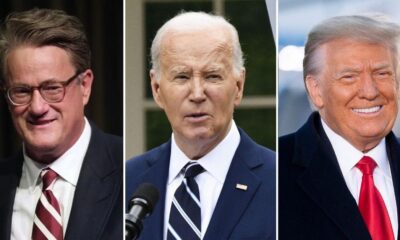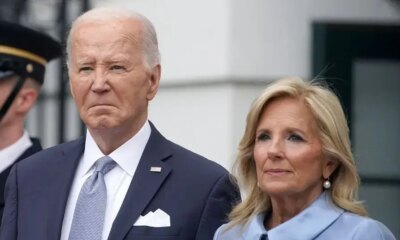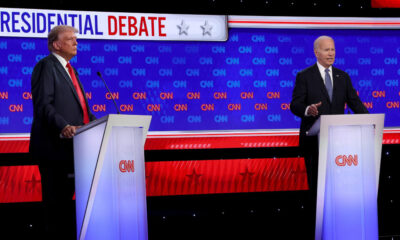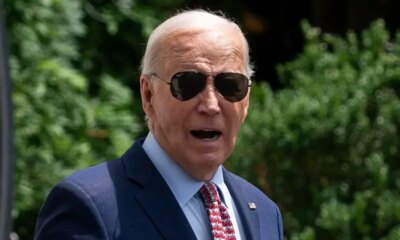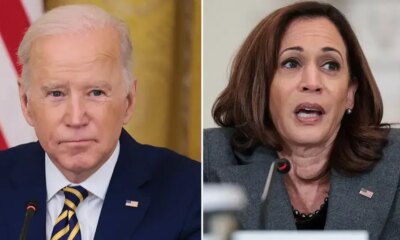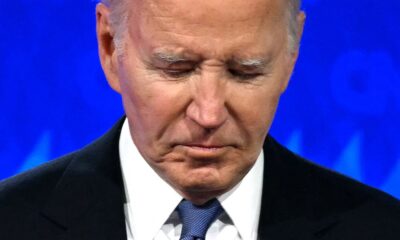Entertainment
Will the unrest after Joe Biden’s 2024 debate change from 1968?
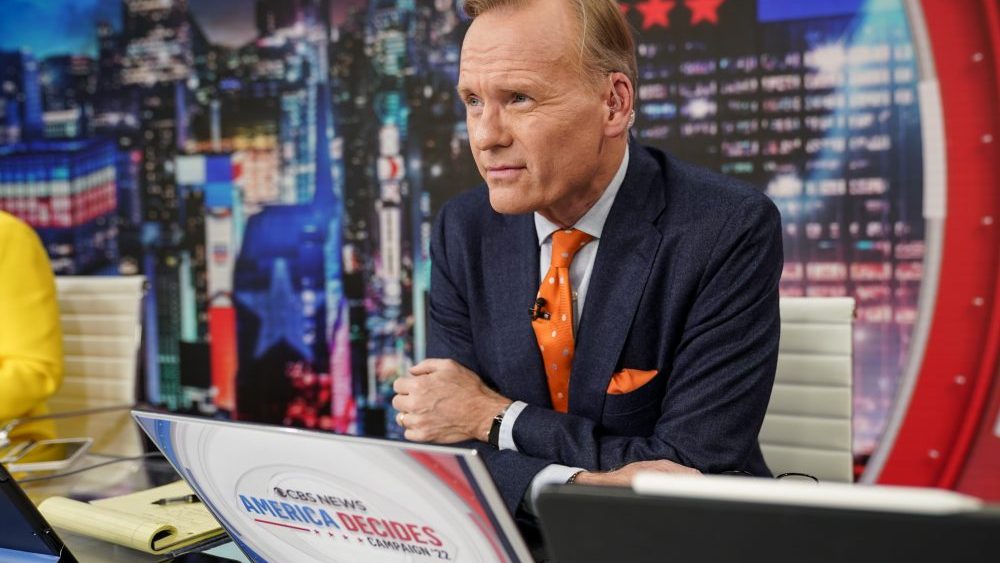
If anyone is in a position to analyze the turmoil in the presidential race caused by Thursday’s debate between Joe Biden and Donald Trump, it is CBS News anchor John Dickerson.
Dickerson is the network’s chief political analyst and anchor of Streaming broadcast ‘The Daily Report with John Dickerson’. He has written extensively about American presidents and the political dynamics of our time in his role as a contributor to the Atlantic and author of the 2020 book “The Hardest Job in the World: The American Presidency.” Additionally, Dickerson also co-hosts the Slate podcasts “Political Gabfest” and “Whistlestop.”
Since the candidates’ June 27 showdown, Dickerson has been working overtime to gauge the impact of Biden and Trump’s performance in the debate, which was held unusually early in the campaign cycle. Dickerson finds little precedent from the past to guide how the battle for the White House in 2024 might play out. And that’s a sobering admission from someone who knows the terrain well.
“This time I don’t know which parallel from history to hold on to,” Dickerson says.
The election is still more than four months away, but the CNN debate feels like a turning point in what has already been an unusual presidential cycle. Are there past examples where debate performances proved crucial to voters?
There has never been an environment like this, but there have been major debate performances that have been a problem. Two come to mind. One is [Ronald] Reagan in 1984 and another is [Gerald] Ford in 1976. In 1984, Reagan’s first debate – the headlines from that debate in major newspapers were similar to what we saw Friday morning after the Biden debate. There were questions about Reagan’s age and basically whether he could serve again. But the two main differences in that case are one: the debate took place in October, so it was very close to the actual election, and Reagan was up by 15-16 points. He finished knocking [Walter] Mondale. So whatever concerns people had after that first debate never really changed the polls much, and they certainly didn’t change the final outcome.
People have said over the years that Reagan’s second debate appearance, in which he quipped, “I’m not going to exploit my opponent’s youth and inexperience,” somehow reset the game. That’s foolishness. Reagan was already fifteen points ahead and he won in what is the modern example of a landslide.
In 1976, Ford said [during the debate] there was no Soviet domination of Eastern Europe, which was a huge blunder and was treated as such at the time. It was late in the campaign and Ford was in a position much worse than Ford’s [Jimmy] Carter. But there was no call for Ford to quit or a concerned visit to the White House or anything like that. It was a campaign debate blunder, and then everyone moved on. It certainly didn’t help Ford. But there is no evidence that the race’s trajectory was significantly accelerated because of that debate performance.
Do you think it will work this time?
This race is different for all the reasons we talk about when we talk about our modern campaigns. The country is so closely divided politically. The race will come down to six or seven states where it’s very, very, very close. We’ve never really had a situation where the expectation was that [the election] would be so extremely close, and where the country is so insensitive to change. Major things have happened that would have torpedoed a campaign in a previous political era. If a candidate is a criminal, this would be a good example. And [this year] they really haven’t changed the overall dynamics of the race, to the extent that we have any idea of what the dynamics of the race are given the fallibility of polls and the rest of it.
It’s possible we’ll be obsessed with something else next week. But will the Biden campaign deeply regret wanting to hold this debate so early?
Political timelines are super short now, and so everything about a debate reinforces our unfortunate tendency to define the entire world based on what happened ten seconds ago. … It can be replaced with any number of things that make people move on. The fact is that we have such partisan divisions in the country, that there are many voters whose minds won’t change no matter what happens to Joe Biden.
The reason this debate gig is a burden for him is the fact that it isn’t going away. He won’t get any younger. This choice to have a debate early was in itself an attempt to eliminate this issue. So it was an attempt to eliminate the question of ‘can he do the job for another four years?’ And that didn’t happen. Not only did it not take away that question, but it made it even bigger. So there are many days between now and when the vote is over, when you know that question will always remain, and there is always the possibility that it will be answered negatively.
1968 is the modern reference year for measuring political unrest in the US. President Lyndon B. Johnson surprises the country by choosing not to run for re-election, in the midst of the Vietnam War and after facing major challenges from fellow Democrats Robert Kennedy and Gene McCarthy. And then Kennedy and Martin Luther King Jr. are assassinated and riots break out in the big cities. What do you think 2024 will look like?
With LBJ it wasn’t the result of a specific initiating event, it was just more bad luck with a president. You had an ongoing war that would continue for the rest of the campaign and that was dragging him down. He got it from left and right. …To the extent that there was an initiating event, you could say it was the Tet Offensive. Which like [Biden’s] The debate appearance was a news event that exacerbated the underlying liability for the candidate. That’s probably the closest analog in terms of a single event that caused this problem. But [Johnson’s withdrawal] was a surprise. No one said, “Oh, Johnson has to drop out,” right? I mean, implicit in the candidacies of McCarthy and Kennedy was the idea that the incumbent president would lose. But it wasn’t what we’re going through now. Although the question today is: what are we going through? Are we essentially just going against pundits and editors saying, “Biden should drop out.” Or are there actual elected officials who will go to Biden and say, “You need to drop out.” And so far I haven’t seen any. The usual suspects have circled the wagons in this case. So we may just get a serious backlash from the non-political class, and that limits the potential impact.
The country’s political disposition began to fundamentally change after the 1968 and 1972 elections. What do you see happening now?
At that time there was much more going on that allowed the political system to move in a way that it sometimes seemed as if it could not. And then it all happened on the streets and in American lives [antiwar] protests and killings. We’ve had January 6, which is the historic shock of the kind I associate with 1968. And look what happened around January 6. You had the leaders of the House of Representatives and the Senate and the vice president and other leaders in the Republican Party. say that Donald Trump was responsible for this attack on the Capitol. I can’t really think of anything more serious. The person who took an oath to defend the Constitution is responsible for an attack on the constitutional process. I mean, you’d think, it’s over. The man would be driven out of politics if the political system worked the way it did in 1968. Now you have all these people who said Donald Trump is responsible for overturning the election – they have now supported him. Mitch McConnell has endorsed Donald Trump. Kevin McCarthy has endorsed Donald Trump. That’s insane, and that’s far stranger and more destabilizing to the political process than anything that happened in 1968.
So we have our own new concerns. History usually stabilizes us. Unfortunately, I don’t see much of the normal stability that can come from history. After the January 6 attack, the system reasserted itself and the people held the line, and Congress was finally able to count and certify the votes. People inside the [Trump] management did the right thing. That was all history and norms reaffirming themselves. This time I don’t know which parallel from history to hold on to. Whether the standards are maintained or not is still an open question.

